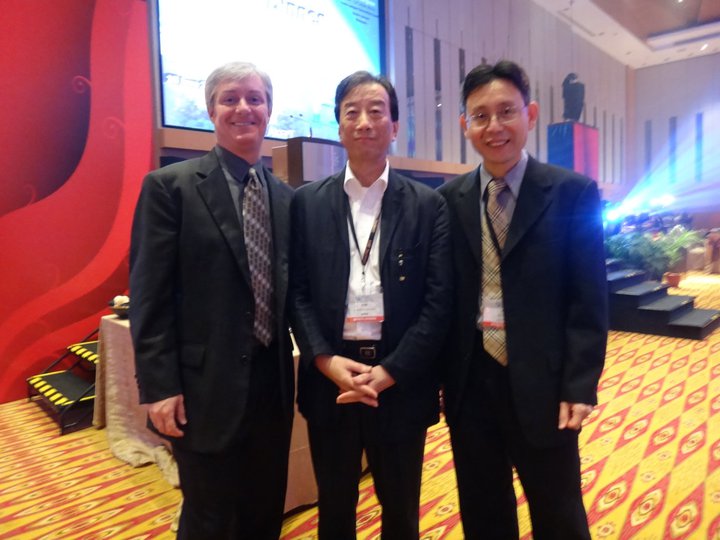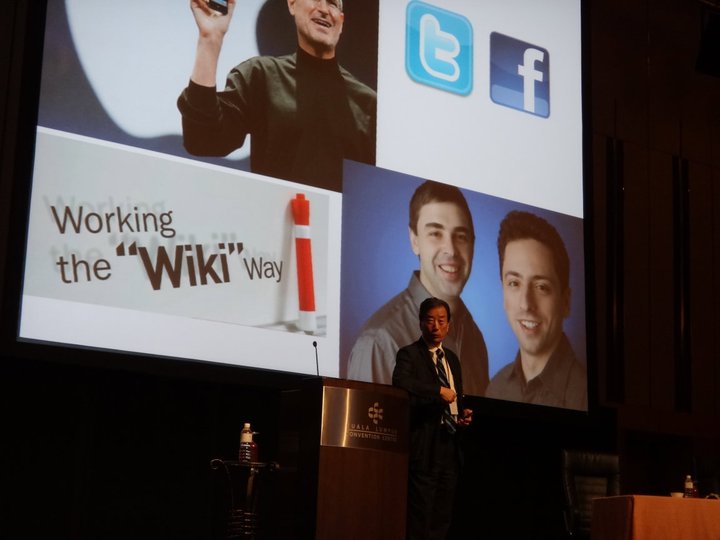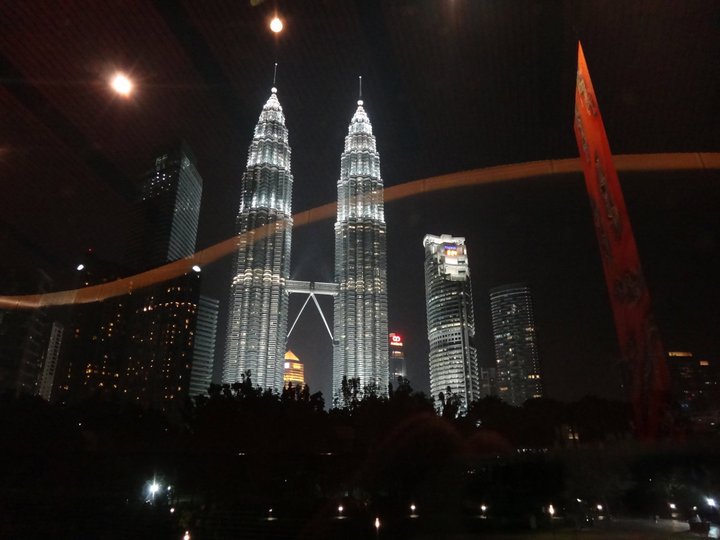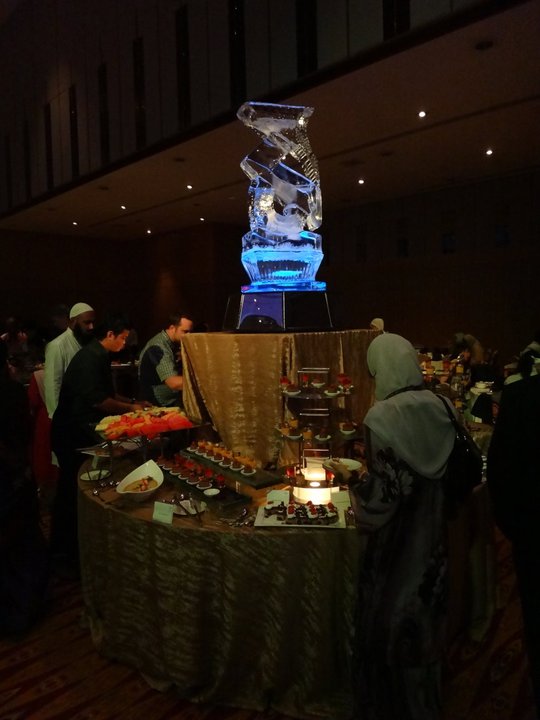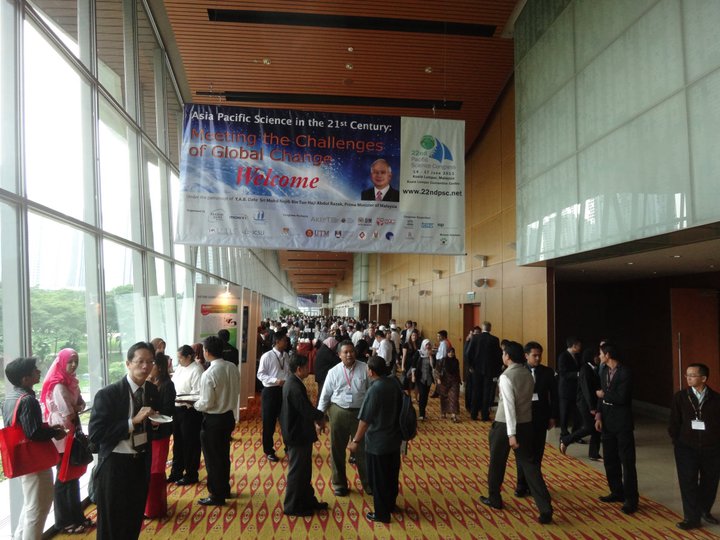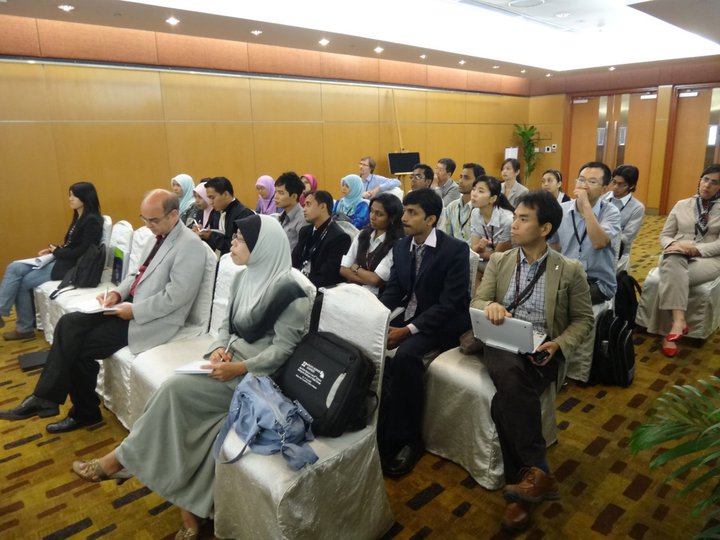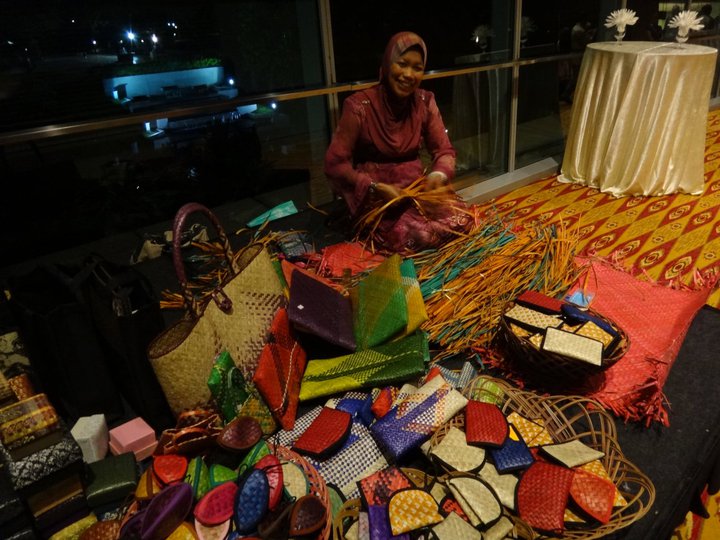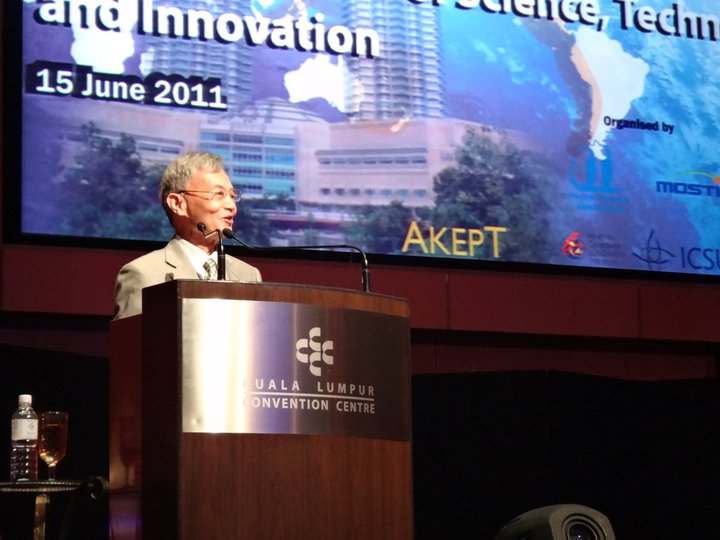I had the honor of being appointed eight years ago to the Presidency of the Pacific Science Association (PSA) and we held the 2007 Pacific Science Congress in Okinawa and then the 2009 Inter-Congress in Tahiti (Ref 1, 2, 3). I have already, as you may know, talked about these gatherings on this site.
The Pacific Science Congress also has a committee within the Japan Science Council and belongs to the International Council of Science (ICSU). This organization has a long and illustrious history of 98 years.
The Congress was held this year in Kuala Lumpur from June 14th to June 17th, and as the Immediate Past-President, I was invited to give a Keynote address. I departed on the 13th for Kuala Lumpur.
Malaysia is a country that is vibrant and growing and it is pouring its energies into policies designed to promote education along with scientific and technological innovation. Many local researchers who receive backing from the government were in attendance at the conference making for a really excellent gathering.
The title of my Keynote address was “Age of Uncertainty: Have We Become Wiser?” and my objective was to be as stimulating and thought provoking as possible. Of course, many in the audience also expressed their support, concern and condolences regarding the recent tsunami and the subsequent events in Fukushima.
Everyone present seemed to find my address interesting and it prompted numerous questions from the audience. The next day I even sat down for a live TV interview that lasted approximately 25 minutes. I was pleased to find out that Greg-san from Nagasaki University observed on his blog that the spirt in the room during my address heightened.
The Japan Science Council’s Hatai Medal was awarded this year to Professor Katsumi Tsukamoto (Ref. 1) for his research on the origin and migration of Pacific eels. Professor Tsukamoto picked up his award in the company of his wife and I want to offer him my heartfelt congratulations on receiving this honor.
I also was able to meet up with Dr. Robert Underwood (left photo below) who is the President of the University of Guam and had served in the U.S. House of Representatives from 1993 to 2003. He talked about the far-flung Pacific Islands including the problems they grapple with in the areas of education and health care as well as their unique relationship with the United States from an extremely interesting perspective. He extended an invitation to me to visit Guam and I think that I would like to take him up on his offer sometime within the next year. The Congress was an overall enjoyable experience which allowed me to see many old friends, make some new ones and meet young up-and-coming researchers.
I have previously talked about the Global Science and Innovation Advisory Council (GSIAC) which operates under the Malaysian Prime Minister, and I also had the opportunity to meet for around an hour with Dr. Zakri, who is the Prime Minister’s Chief Science Advisor, and his staff. The members were truly an impressive lot and I was honored to be able to participate in this confab.
The next Inter-Congress meeting is scheduled to be held two years from now at the University of the South Pacific (Fiji). How about joining us then??
